
Crimes using high technology and cyberspace are increasingly sophisticated and complex.
In recent years, non-traditional security threats have been increasing, affecting large scales, threatening the stability and development of all aspects of life of communities, countries, regions and the world.
These threats can arise from nature, with manifestations of climate change, such as rapid increase in global temperature causing ice to melt, sea level rise, saltwater intrusion and extreme weather phenomena such as storms, floods, tsunamis, earthquakes, droughts, prolonged cold spells... causing loss of biodiversity, destruction of ecosystems, affecting agricultural , industrial and service production sectors; infectious diseases appear more frequently, spread rapidly, are more complex, and have increasingly serious consequences.
Non-traditional security threats caused by negative human activities, such as terrorism, transnational crimes such as drug crimes, human trafficking; especially crimes using high technology, cyberspace, taking advantage of the globalization process to increase criminal acts with new methods and tricks that are increasingly sophisticated and complex.
Building Vietnam into a country capable of effectively managing non-traditional security threats
The overall goal of the National Strategy for Prevention and Response to Non-Traditional Security Threats to 2030, with a vision to 2045, is to create unity in awareness and action of the entire political system and society in preventing and responding to non-traditional security threats. Gradually build Vietnam into a country capable of effectively managing these threats, ensuring safety for people and society; actively and proactively propose ideas and models... to promote international cooperation and make practical and responsible contributions to the international community in addressing non-traditional security threats; contribute to sustainable national development, effectively serving the task of building and defending the Fatherland in the new situation.
Focus on improving forecasting and early warning capacity
The strategy strives that by 2030, the entire political system and all people will be informed,educated , and identified about non-traditional security threats; thereby clearly recognizing responsibility and thoroughly implementing the "four on-the-spot" motto in prevention and response (on-site command; on-site forces; on-site supplies and means; on-site logistics).
By 2030, complete the revision and supplementation of legal documents regulating standards and regulations in each sector and field as a basis for determining the level, extent and mechanism of prevention and response. Complete the set of national security, safety and welfare indicators as a basis for determining warnings and organizing prevention and response activities.
Focus on improving forecasting and early warning capacity. By 2030, 100% of key areas of non-traditional security threats will have monitoring, surveillance and early warning systems in the following areas: geology, climate change, environment, water resources, energy, health and crime prevention and control. Establish a database related to non-traditional security threats in the National Data Center towards a complete, interconnected and synchronous data system both vertically (from central to local) and horizontally (inter-ministerial, inter-sectoral).
Forces participating in preventing and responding to non-traditional security threats are well-organized, have prevention and response capacity and are equipped with modern means equivalent to those of leading countries in the region in a number of areas such as climate change; environment, cyber security; health security; prevention and combat of transnational organized crime and terrorism.
Establish a mechanism to respond to non-traditional security threats at all levels to coordinate response activities when serious threats occur. Complete planning, plans, and framework scenarios for preventing and responding to non-traditional security threats at all levels. 100% of the direct response forces are trained and practice realistically, ensuring the ability to complete tasks.
Initially implementing a number of dual-use projects and works to mitigate damage from non-traditional security threats caused by nature and ensure cyber security, data security, and health security.
Have appropriate reserve resources to respond well to the recovery, reconstruction, and return to normal development of the subjects affected by non-traditional security threats. Form a fund to prevent and respond to these threats at all levels according to the provisions of law with contributions from the State and society. Effectively use all resources in prevention and response.
Actively and proactively participate in international cooperation to prevent and respond to non-traditional security threats in accordance with conditions and capabilities; research and propose the establishment of an annual international forum chaired by Vietnam, attracting international scholars, experts, and government officials from countries in the region and around the world to discuss cooperation in this field.
Creating a solid legal basis for prevention and response work
By 2045, the entire political system and the entire population will be informed and clearly identify non-traditional security threats, and have the capacity and proactive attitude to prevent and respond to these threats.
Before 2045, there will be a synchronous, unified legal system in accordance with international law; policies on prevention and response to non-traditional security threats will be fully developed, feasible, transparent, stable, and accessible, with strict and consistent enforcement mechanisms, creating a solid legal basis for prevention and response work.
The capacity to forecast and provide early warning of non-traditional security threats is equivalent to that of developed countries, based on a team of experts and modern technical infrastructure, a complete, synchronous, and updated interconnected data system to meet prevention and response requirements in all situations.
Local forces at the grassroots level are capable of effectively responding to non-traditional security threats; forming a mobile force ready to participate in international cooperation in preventing and responding to these threats.
The framework plans, scenarios and scenarios for responding to and handling non-traditional security threats in all fields are operated smoothly, synchronously, rhythmically and effectively. In particular, the application and exploitation of advanced scientific and technological achievements in response are focused.
Have adequate dual-use infrastructure systems and flexible adaptability to limit the impact of disasters and non-traditional security incidents. Have adequate reserves to meet all requirements for recovery, reconstruction and normal development after disasters and incidents occurring in the country and be ready to serve international cooperation activities to respond to and overcome disasters and incidents.
Be active in international cooperation, proactively participate in building international cooperation frameworks and mechanisms to prevent and respond to non-traditional security threats; clearly demonstrate the role of a responsible member, making positive and effective contributions to the international community in preventing and responding to these threats.
8 key tasks and solutions
To achieve the above goals, the Strategy sets out 8 key tasks and solutions to be implemented, including:
1- Forming a mechanism to operate and manage the work of preventing and responding to non-traditional security threats;
2- Perfecting the system of policies and laws related to prevention and response to non-traditional security threats;
3- Improve strategic forecasting capacity, effectiveness of state management, national governance, and risk control to proactively prevent, respond, and adapt to non-traditional security threats;
4- Promote sustainable development, create a solid position and strength, mobilize comprehensive, all-people, socialized strength, and utilize all resources to prevent and respond to non-traditional security threats;
5- Strengthen information and communication work to raise awareness and skills; proactively develop plans, organize training and drills for scenarios of prevention, mitigation, relief, recovery, reconstruction and development in specific cases and situations;
6- Focus on improving knowledge, qualifications and skills for staff participating in preventing and responding to non-traditional security threats;
7- Promote digital transformation combined with research and development, research transfer, and application of modern science and technology in preventing and responding to non-traditional security threats;
8- Strengthen international cooperation in preventing and responding to non-traditional security threats.
Phuong Nhi
Source: https://baochinhphu.vn/chien-luoc-tong-the-quoc-gia-phong-ngua-ung-pho-voi-cac-de-doa-an-ninh-phi-truyen-thong-102250523190505361.htm


![[Photo] Anh Hoang - Dinh Duc successfully defended the men's doubles championship of the National Table Tennis Championship of Nhan Dan Newspaper](https://vphoto.vietnam.vn/thumb/1200x675/vietnam/resource/IMAGE/2025/5/23/d6ab3bcac02c49928b38c729d795cac6)



![[Photo] Top players gather at the 2025 Nhan Dan Newspaper National Table Tennis Championship](https://vphoto.vietnam.vn/thumb/1200x675/vietnam/resource/IMAGE/2025/5/23/9ad5f6f4faf146b08335e5c446edb107)



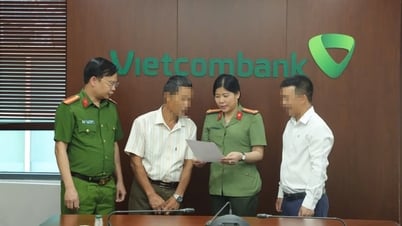

![[Video] Launch of the publication "The Teacher and the Books"](https://vphoto.vietnam.vn/thumb/402x226/vietnam/resource/IMAGE/2025/5/23/f8b7526776a44a57b0d4d9213c0c660d)










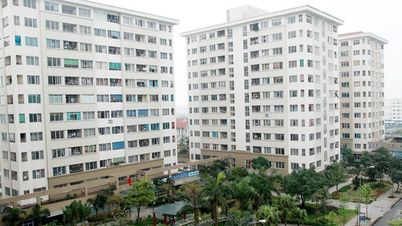




















































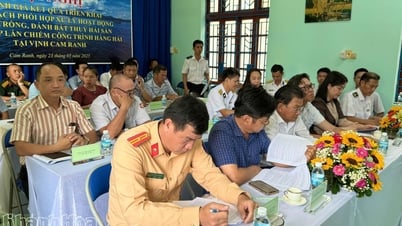



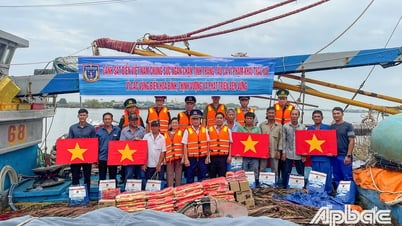

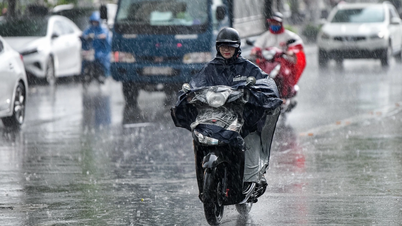












Comment (0)